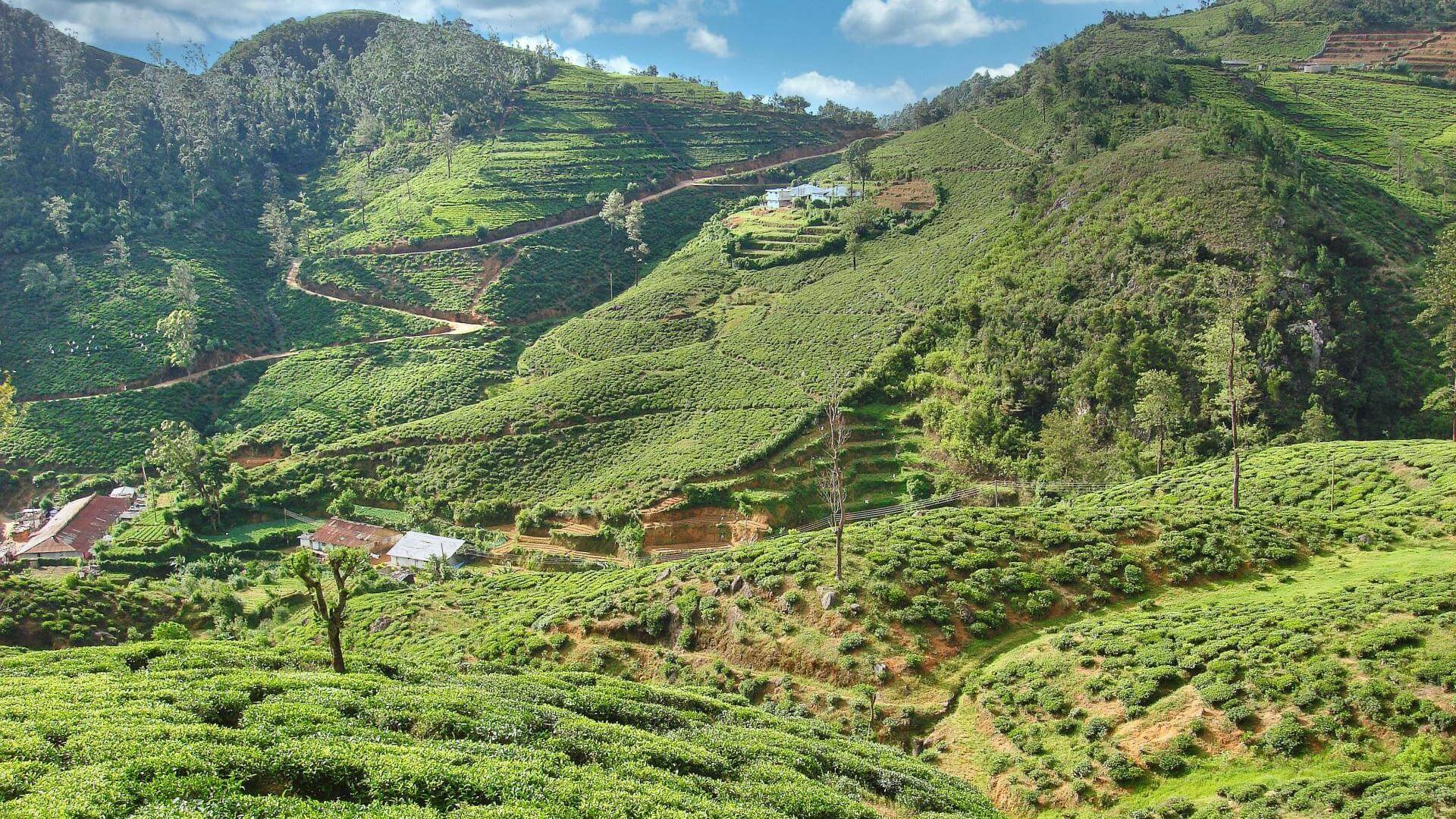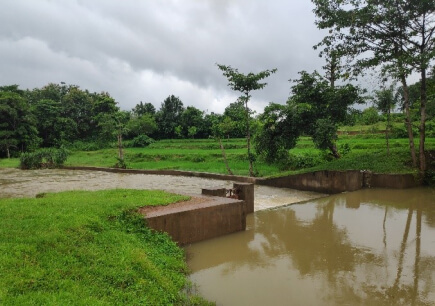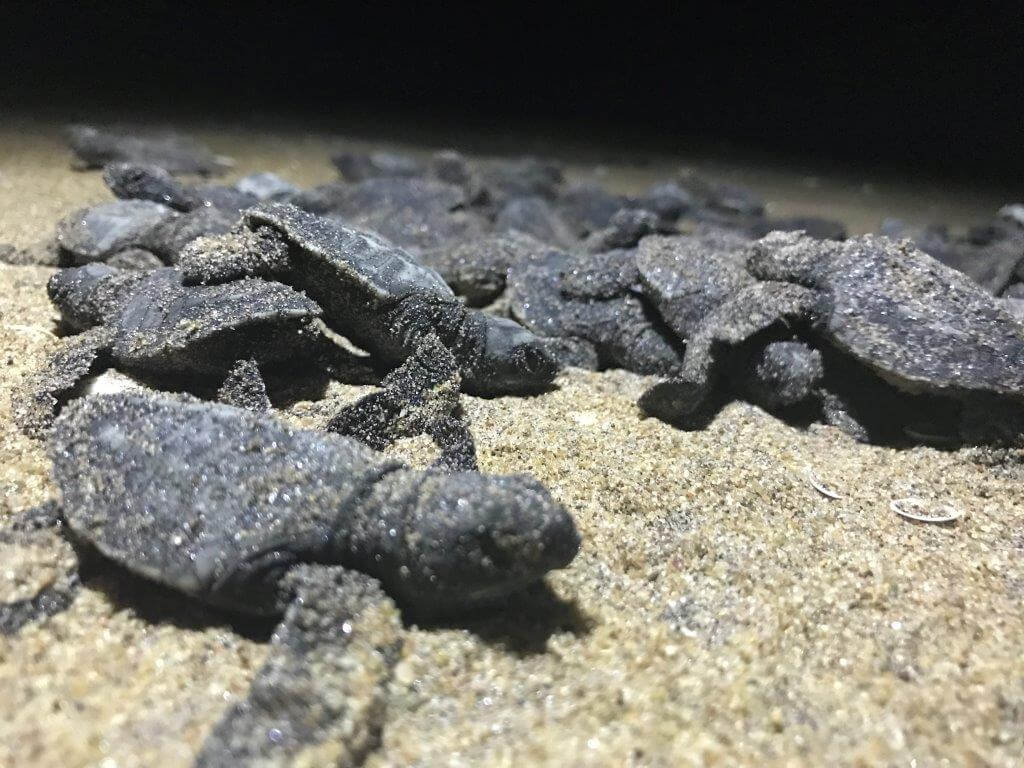Climate Adaptation
Evaluation Management Unit for the Forestry, Land Use and Governance (FLAG) Programme, Indonesia
DFID
Evaluation Management Unit for the Forestry, Land Use and Governance (FLAG) Programme, Indonesia
FLAG was a £32.5 million, 3-year programme to support action to reduce the rate of deforestation and Peat land degradation in Indonesia...
12.1
Generated 12.1 million tonnes of avoided CO2e
20,958 hectares
Prevented 20,958 hectares of deforestation and forest degradation
33,000
Reduced GHG emissions from an area of 33,000 hectares of peatlands
Infrastructure for Climate Resilient Growth in India (ICRG) Programme, India
DFID
Infrastructure for Climate Resilient Growth in India (ICRG) Programme, India
ICRG was a 43-month Technical Assistance (TA) Programme commissioned by the United Kingdom’s Department for International Development (DFID) that aimed to support the Ministry of Rural Development (MoRD), Government of India. Selected from 2500 blocks under the special focus of MGNREGA by the Government of India, the ICRG programme was implemented in 103 blocks in the states of Bihar, Odisha, and Chhattisgarh. The programme aimed to ensure that the most vulnerable sections in selected geographies were able to tackle the impact of climate extremes. Facilitating a better understanding of climate factors, capacity building of field practitioners, and improving the design of the work being undertaken, ICRG synergized its resources with MGNREGA in building climate resilience of the most vulnerable to achieve improved quality and climate resilient assets.
35000+
people trained on climate proofing MGNREGA assets
18,000+
MGNREGA and Line Department functionaries trained
27
Training Modules & Guidebooks developed
Preparation of Integrated Coastal Zone Management Plan (ICZMP) and Shoreline Management Plan for Odisha, India
THE WORLD BANK
Preparation of Integrated Coastal Zone Management Plan (ICZMP) and Shoreline Management Plan for Odisha, India
The Government of Odisha, with financial assistance from the Ministry of Environment and Forests (MoEF), Government of India (GoI) and the World Bank, initiated the ICZMP project. The project aimed...
GIS-Based Database Creation
to analyse potential for damage to people and property due to coastal hazards
Conceptual Modelling
to undertand coastal behaviour to comprehend the past, present and potential future hazards
Sectoral Plan
development with focus on coastal sectors of highest priority considering all the sectoral aspects
Land Vulnerability Mapping
for analysing potential for damage to people and property due to coastal hazards
Shoreline Management Sub Plan
creation to provide broad management strategies for delineated sediment cells
Integrated Coastal Zone Management Plan
creation to access all the coastal features and provide implementation strategies in consultation with all the stakeholders
Climate Adaptation
Evaluation Management Unit for the Forestry, Land Use and Governance (FLAG) Programme, Indonesia
DFID
Evaluation Management Unit for the Forestry, Land Use and Governance (FLAG) Programme, Indonesia
FLAG was a £32.5 million, 3-year programme to support action to reduce the rate of deforestation and Peat land degradation in Indonesia...
12.1
Generated 12.1 million tonnes of avoided CO2e
20,958 hectares
Prevented 20,958 hectares of deforestation and forest degradation
33,000
Reduced GHG emissions from an area of 33,000 hectares of peatlands
Infrastructure for Climate Resilient Growth in India (ICRG) Programme, India
DFID
Infrastructure for Climate Resilient Growth in India (ICRG) Programme, India
ICRG was a 43-month Technical Assistance (TA) Programme commissioned by the United Kingdom’s Department for International Development (DFID) that aimed to support the Ministry of Rural Development (MoRD), Government of India. Selected from 2500 blocks under the special focus of MGNREGA by the Government of India, the ICRG programme was implemented in 103 blocks in the states of Bihar, Odisha, and Chhattisgarh. The programme aimed to ensure that the most vulnerable sections in selected geographies were able to tackle the impact of climate extremes. Facilitating a better understanding of climate factors, capacity building of field practitioners, and improving the design of the work being undertaken, ICRG synergized its resources with MGNREGA in building climate resilience of the most vulnerable to achieve improved quality and climate resilient assets.
35000+
people trained on climate proofing MGNREGA assets
18,000+
MGNREGA and Line Department functionaries trained
27
Training Modules & Guidebooks developed
Preparation of Integrated Coastal Zone Management Plan (ICZMP) and Shoreline Management Plan for Odisha, India
THE WORLD BANK
Preparation of Integrated Coastal Zone Management Plan (ICZMP) and Shoreline Management Plan for Odisha, India
The Government of Odisha, with financial assistance from the Ministry of Environment and Forests (MoEF), Government of India (GoI) and the World Bank, initiated the ICZMP project. The project aimed...
GIS-Based Database Creation
to analyse potential for damage to people and property due to coastal hazards
Conceptual Modelling
to undertand coastal behaviour to comprehend the past, present and potential future hazards
Sectoral Plan
development with focus on coastal sectors of highest priority considering all the sectoral aspects
Land Vulnerability Mapping
for analysing potential for damage to people and property due to coastal hazards
Shoreline Management Sub Plan
creation to provide broad management strategies for delineated sediment cells
Integrated Coastal Zone Management Plan
creation to access all the coastal features and provide implementation strategies in consultation with all the stakeholders

The German Agency for International Cooperation (GIZ) (SDC), Embassy of Switzerland
Develop Training Modules and Capacitate State Government Stakeholders on Sector wise Climate Change Impacts, Vulnerabilities and Adaptive Capacities, Mizoram, India
Climate Change Adaptation – North Eastern Region of India (CCA-NER) is a bilateral cooperation arrangement between the Governments of India and Germany. Working with the Ministry of Development of North Eastern Region (MoDoNER)

Swiss Agency for Development and Cooperation (SDC), Embassy of Switzerland
Preparation of Climate Adaptive Plans for 5 Districts of Madhya Pradesh, Uttarakhand and Sikkim for Climate Resilient Development
Swiss Agency for Development and Cooperation (SDC) aimed to integrate climate actions into state planning, benefitting local communities in India by strengthening capacities of state nodal agencies on climate change, and focusing on sectoral departments

South South North (SSN)
Mobilising Investment for NDC Implementation-Understanding the Ethiopian Regulatory Environment in Relation to Mini- Grids, Ethiopia
The Mobilising Investment (MI) project for NDC implementation was a 3-year project focused on interventions within seven target countries: Bangladesh, Dominican Republic, Ethiopia, Kenya, Peru, Philippines and Vietnam.

Aga Khan Foundation
Longitudinal Study to Assess the Impact of Organic Farming on Farm Incomes, Environment and Cotton Productivity in the Nimar Region of Madhya Pradesh
Aga Khan Foundation
The Aga Khan Rural Support Programme in India with funding from the Laudes Foundation has been supporting an organic cotton farming programme in three districts of the Nimar Region in Madhya Pradesh where cotton is a major crop and a key source of income for the predominant tribal communities…


United Nations Capital Development Fund (UNCDF)
Final Evaluation of Local Climate Adaptive Living Facility (LoCAL) in 14 countries across Asia, Africa and Asia-Pacific; Deep dives in Bhutan, Tanzania, Niger and Tuvalu
UNCDF designed the Local Climate Adaptive Living Facility (LoCAL) in 2011 to promote climate change–resilient communities and local economies by establishing a standard, internationally recognised country-based mechanism to channel climate finance to local government authorities in developing countries, particularly the Least Developed Countries…






